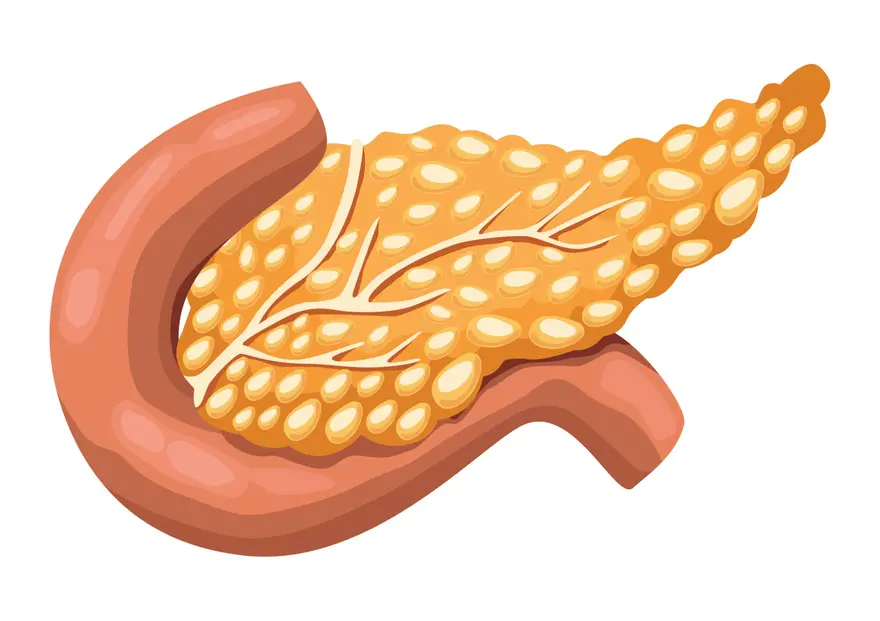Preventive Healthcare
Folate vs Folic Acid: What's the Difference and Why It Matters
493 Views
0

Folate and folic acid are two terms which are often used interchangeably when referring to vitamin B9, an essential nutrient for human health. However, while both play similar roles in the body, there are some key differences between folate and folic acid that are important to understand. This article delves into the key distinctions between folate and folic acid, their respective health benefits, and why getting enough of this vitamin is crucial for everyone, especially women who are pregnant or planning to conceive.
What Are Folate and Folic Acid?
Before diving into the folate vs. folic acid comparison, let's first define each:
- Folate is the naturally occurring form of vitamin B9 found in various plant and animal foods. Good sources include leafy green vegetables, citrus fruits, beans, and liver.
- Folic acid is the synthetic form of vitamin B9 used in supplements and added to fortified foods like breakfast cereals, breads, and pastas. It is more shelf-stable and bioavailable compared to natural folate.
Both folate and folic acid are converted in the body to the metabolically active form called levomefolic acid or 5-methyltetrahydrofolate (5-MTHF). This is the form that can be used by cells for critical functions like DNA synthesis, red blood cell production, and homocysteine metabolism.
Key Differences Between Folate and Folic Acid
While folate and folic acid ultimately serve the same purpose in the body, there are some notable differences between folate and folic acid:
- Source: Folate is naturally present in foods, while folic acid is an artificially produced compound.
- Bioavailability: Folic acid is more readily absorbed and bioavailable compared to food folate. The body converts about 85% of folic acid into the active form, versus only 50% of folate from natural sources.
- Tolerance: Some people have a genetic variation (MTHFR polymorphism) that reduces their ability to convert folic acid to the active form. For them, high doses of folic acid may actually be harmful. Natural folate does not pose this risk.
- Fortification: Many countries, including India, have mandatory or voluntary folic acid fortification of certain foods to help prevent birth defects. Natural folate is not used for fortification.
Understanding these key differences between folate and folic acid can help you make informed choices about the best sources of vitamin B9 for your individual needs.
Health Benefits of Folate and Folic Acid
Folate
The health benefits of getting enough natural folate from your diet include:
- Supporting red blood cell production and preventing folate-deficiency anemia
- Reducing the risk of certain cancers, including colorectal cancer
- Promoting brain health and lowering the risk of depression and dementia
- Helping to regulate homocysteine levels, an amino acid linked to heart disease
Folic Acid
Folic acid supplementation is particularly important in certain situations:
- Pregnancy: Adequate folic acid intake (400-800 mcg/day) starting at least one month before conception and continuing through the first trimester significantly reduces the risk of neural tube birth defects like spina bifida and anencephaly. This is why folic acid vs folate during pregnancy is an important consideration.
- Folate deficiency: People with digestive disorders, alcoholism, or eating disorders that impair folate absorption may benefit from folic acid supplements to prevent deficiency.
- Medication interactions: Some drugs like methotrexate and anti-epileptic medications can interfere with folate metabolism. Folic acid supplements may be recommended to counteract these effects.
Why Does the Difference Matter?
You may be wondering, with all the similarities in function, does the whole folate vs. folic acid debate really matter? In most cases, both forms can fulfil your vitamin B9 requirements. However, there are some important reasons to understand the distinction:
- If you have the MTHFR gene variation, you may do better with natural folate or a special form of folic acid (L-methylfolate) to avoid any negative effects from unmetabolized folic acid buildup.
- Focusing on folate-rich foods helps ensure you're also getting other vital nutrients, fibre, and antioxidants for overall health. A balanced diet is always preferable to relying solely on supplements.
- Being aware of the differences between folate and folic acid allows you to make educated choices about supplements and fortified foods, especially during pregnancy when folic acid vs. folate intake is critical.
What Is the Healthiest Source of Vitamin B9?
The optimal approach to getting enough vitamin B9 is to include both natural folate and folic acid in your diet.
- Regularly eat a variety of folate-rich foods like spinach, asparagus, Brussels sprouts, avocados, oranges, beans, and lentils. Aim for at least 400 mcg DFE (dietary folate equivalents) per day.
- If you are pregnant, trying to conceive, or have a higher risk of deficiency, add a folic acid supplement of 400-800 mcg per day. Look for a multivitamin or B-complex formula with folic acid.
- Choose fortified foods like breakfast cereals and breads to boost your folic acid intake, unless you need to limit your consumption due to MTHFR gene variations.
The combination of dietary folate and folic acid supplementation, tailored to your individual needs, is the best way to reap the full spectrum of vitamin B9 benefits.
When and Why to Use Folic Acid Supplements
Folic acid supplements are recommended in the following scenarios:
- Pregnancy: All women of reproductive age should take 400 mcg of folic acid daily and increase to 600-800 mcg during pregnancy to reduce the risk of neural tube defects. Start supplementing at least one month before trying to conceive.
- Folate deficiency: If you have been diagnosed with folate deficiency based on a blood test, your doctor may prescribe folic acid supplements to replenish your stores and prevent complications like anaemia.
- Digestive disorders: Conditions like coeliac disease, inflammatory bowel disease (IBD), and chronic diarrhoea can impair folate absorption. Folic acid supplements may be necessary to maintain adequate levels.
- Medications: Certain medications can interfere with folate metabolism or increase the risk of deficiency. These include methotrexate, sulfasalazine, triamterene, and some anti-seizure drugs. Folic acid supplementation may be advised to offset these effects.
Conclusion
The folate vs. folic acid question doesn't have a one-size-fits-all answer. Both forms of vitamin B9 offer important health benefits, but the key is to tailor your intake based on your age, sex, health status, and reproductive goals. For personalised guidance on optimising your folate levels, consider consulting with Metropolis Healthcare. Their expert team offers comprehensive nutrition assessments and testing to help you make informed decisions about your diet and supplement needs. With a commitment to patient education and preventive care, Metropolis is your trusted partner in navigating the sometimes confusing world of vitamins for better health.
FAQs
Is folate better than folic acid?
Neither form is necessarily "better." Both effectively raise vitamin B9 levels, but there are differences between folate and folic acid in terms of bioavailability and potential risks for certain individuals. The healthiest approach is usually to get a mix of both natural folate and folic acid, unless you have a specific condition that warrants avoiding folic acid.
Can I get enough folate from my diet?
It is possible to meet your daily folate needs through a diet alone by regularly consuming a wide variety of plant foods like leafy greens, legumes, and citrus fruits. However, many people may still fall short, especially pregnant women who have higher requirements. Afolic acid supplement provides a reliable way to ensure adequate intake.
What happens if I take too much folic acid?
Folic acid is generally safe and well-tolerated in the recommended doses. Excess folic acid is excreted in the urine. However, very high doses (above 1,000 mcg per day) may cause side effects like abdominal cramps, diarrhoea, and skin reactions in some people. There are also concerns that excess folic acid could mask vitamin B12 deficiency or increase the risk of certain cancers, but more research is needed. It's best to consult your healthcare provider about the appropriate dosage for your needs.










1738939555.webp)


1701259759.webp)









 WhatsApp
WhatsApp